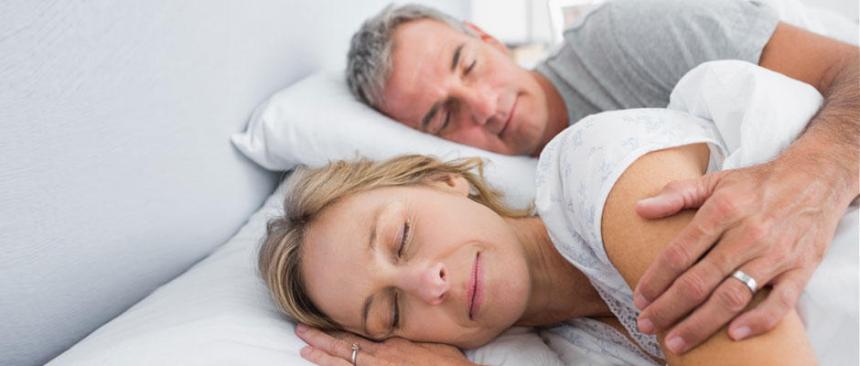Can Exercise Help Beat Insomnia?

Sleeplessness is a major problem in the United States. Between 30 and 40 percent of American adults describe having intermittent insomnia, difficulty sleeping for a few nights, followed by sleeping adequately. Another 10 to 15 percent of adults report chronic insomnia, sleeping problems that occur nightly and persist for months or years.
For years, research has credited physical activity with helping people sleep better. However, most of our knowledge regarding the relationship between exercise and sleep has been based on studies with participants who did not have problems sleeping. This led researchers at the Feinberg School of Medicine at Northwestern University to examine the effects exercise has on people struggling with insomnia.
Northwestern University’s study that was recently published in The Journal of Clinical Sleep Medicine found that working out on a stationary cycle or treadmill for 30 minutes, three or four times per week at a moderate intensity helped participants struggling with insomnia sleep longer and more soundly. Results also suggested that participants needed to follow this exercise regimen for at least four months in order to see benefits. Further, study participants reported sleeping better on the nights they exercised and sleeping poorly on the nights they did not.
How Does Exercise Help Us Sleep?
A group of nerve cells in the brain's hypothalamus function as our biological clock, controlling the 24-hour cycle of biological processes called circadian rhythms. One example is our body temperature; circadian rhythms cause our body temperature to slightly increase during the day and decrease at night, hitting its lowest point just before dawn. When our temperature decreases, it signals our body that it's time to sleep.
Exercise temporarily raises our temperature. About 30 minutes of aerobic activity will keep your temperature elevated for four to five hours. Eventually, your body temperature will begin dropping, lower than it was before you started exercising, which helps your body sleep. This is one reason some experts recommend working out in the early evening rather than closer to your bedtime.
Additionally, as part of our body's physiological response to exercise, neurotransmitters such as endorphins, serotonin and dopamine are released. They help us relax and improve our mood, which is the reason physical activity is credited with relieving stress, anxiety and depression, three common causes of sleepless nights. Moreover, many cases of insomnia are tied to a hyper-arousal of the nervous system, which is like an ongoing fight-or-flight stress response that creates a feeling of being too wired to sleep even though you are exhausted. Exercise, specifically aerobic activities like walking and cycling, burns cortisol (the hormone released during the stress response) and eases the stress response which allows for better sleep.
Related Health Issues
A wide variety of health conditions are linked to insomnia. For instance, the breathing difficulties caused by asthma and COPD; sleep disturbances related to multiple sclerosis, dementia and anxiety; symptoms of allergies, colds, flu and GERD; and pain related to injuries, fibromyalgia and cancer can contribute to insomnia. And a lack of sleep is linked to even more issues - obesity and other problems such as heart disease, high blood pressure and diabetes. Talk with your doctor if you suffer from any of these conditions and have difficulty sleeping. Your doctor can help you create an exercise regimen and may also offer a walking program in which you can participate.
Continue reading to learn how lack of sleep can cause weight gain.


